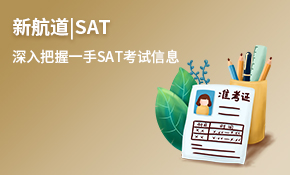6月24日大作文范文:关于政府对教育的投资
6月24日雅思作文范文:关于政府对教育的投资,本次考试是教育类话题。众所周知,教育类话题是雅思作文的“大户”,约占所有考试的1/5,因此是烤鸭复习备考时必须重点关注的。
6月24日雅思作文原题:Government funding for universities should only be provided for top students. All other fees should be collected from students and private sponsors. To what extent do you agree or disagree?
教育类话题多种多样,涉及到
学生该学什么
学校该教什么(比如艺术类课程该不该作为必修课)
老师和学生之间的关系(比如学生是否该评价老师)
家长与学生之间的关系(比如孩子教育中家长更重要还是学校更重要)
教育方式(比如网络教育是不是比学校教育更有效)
教育投资(比如大学的学费到底是学生自己的责任还是政府的责任),等等。
本题是关于政府对教育的投资:应该只支持那些成绩好的学生吗?对于成绩不好的学生,应该自己支付或者由私人赞助商支付?这个观点一看就比较荒谬,但问题是:我们应该怎样来驳斥这样一个观点?
首先,每一个大学生从某种意义上都是“好学生”,都应该得到政府的支持;
其次,即使按照学校标准划分了“好学生”,只资助这些“好学生”会让很多贫困家庭的孩子无法上学,使他们失去获得公平教育的机会;
最后,如果政府只资助“好学生”,无疑会在大学生中制造不平等,这是违背高等教育精神的。
当然,“好学生”也许该获得更多的奖励,但非常好以奖学金的方式来进行,不应该削弱或剥夺其他学生的教育机会。
6月24日雅思作文7分范文
The government in any country provides funding for the development of its higher education, but there are divided opinions about where this government funding should go. Should it goexclusively to those “top students” or indiscriminately to all students? My personal view is, however, quite definitive: the government money should be provided for all students.
解析:(1) higher education 高等教育;(2) divided opinion 不一致的观点;(3) exclusively 单独地;(4) indiscriminately 不加区分地,不歧视地;(5) definitive 确定无疑的。
任何国家的政府都为本国高等教育的发展提供资助,但关于政府资助到底该用在哪里却有不同观点。它是该只用于“学生”还是不加区分地用于所有学生?然而,我个人的观点是确定无疑的:政府资金应该提供给所有学生。
To begin with, the concept of “top students” is rather vague or sometimes downright mistaken.As I see it, all university students are “top” in one way or another. Some of them may be good at their academic subjects, while others may excel in music, sports, designing, to mention only a few. As each student is unique in his/her own way, to sort out a few and label them as “top students” is senseless and misleading. Then, secondly, even if we manage to define some students as being “top” in accordance with a set of (often biased) standards, those from the poor families who happen not to fall into this “top” category will have a hard time going to college if they are not able to use the government funding. This means many students may lose the opportunity to receive higher education. Ultimately, government providing funding only for the “top students” is itself a bad thing to do, because it runs against the spirit of higher education, that is, to foster the sense of equality, fairness and justice.
解析:(1) concept 概念;(2) vague 模糊的;(3) downright 完全地;(4) as I see it 在我看来;我认为;(5) excel in… 在……方面很;(6) label 标签;(7) biased 有偏见的;(8) ultimately 最后;终于;(9) foster 培养。
首先,“学生”这个概念相当模糊,有时候甚至是完全错误的。在我看来,所有大学生在某种方式上都是“”的。有些可能精于学业,另外一些可能在音乐、体育、设计等方面超过别人。由于每个学生都以自己的方式而独特,那么选出一些并标之以“学生”就是没有意义而且具有误导性的。其次,即使我们按照一套(往往是带有偏见的)标准,成功地把一些学生定义为“”,那些来自贫穷家庭又恰好没有被划入“”范围的学生如果不能使用政府资金,上大学就会有困难。这意味着很多学生可能失去接受大学教育的机会。最后,政府仅为“学生”提供资助本身就是一件不好的事情,因为这种做法违背了高等教育的精神,即培养平等、公平、正义的意识。
This does not follow, however, that the hard work of those “top students” should not berewarded. My suggestion is that they be rewarded in various forms of scholarships. In this way, the “top students” are positively encouraged and meanwhile other students are not deprived ofthe government financial support.
解析:(1) this does not follow that… 这不意味着……;(2) reward 回报,奖励;(3) be deprived of… ……被剥夺。
然而,这并不意味着“学生”付出的辛苦不应该得到回报。我的建议是以各种奖学金的形式回报他们。这样,“学生”就得到了正面的鼓励,而同时其他学生也不被剥夺政府的资金支持。















